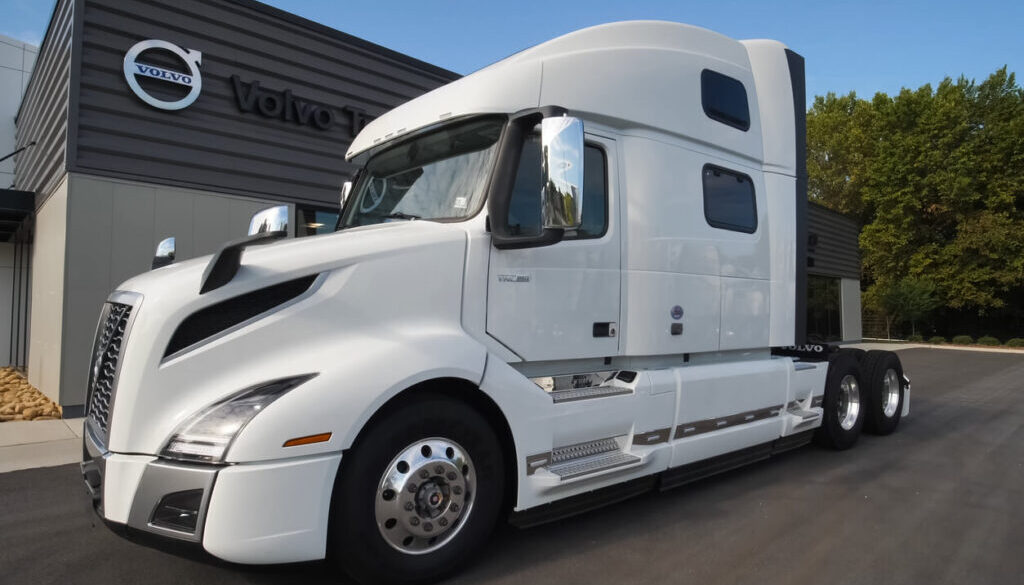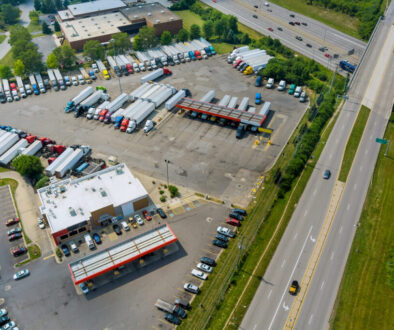The United Auto Workers-Volvo Strike
Anyone who has been in the trucking industry for longer than a year knows that demand for trucks (new, used, and components) is rapidly outpacing supply, at least for the short term. What better time to leverage your position than when you are needed most? Whether that was their plan or the timing just happened to be perfect when their contract expired, leveraging was what the United Auto Workers (UAW) union did when their contract with Volvo recently expired. They decided to strike for better terms of service. Rather than update every time something new happened in the saga, we will give you the timeline of events now that the two parties have struck a deal.
Background
Our story begins at the New River Valley (NRV) plant in Dublin, Virginia. Volvo Trucks North America and UAW Local 2069 had an agreement near the start of 2016 that lasted all five years of its term. Over those five years, employment at NRV grew 50%, from around 2,200 to above 3,300. Of the 3,300 employees, 2,900 are with UAW. NRV is also in the middle of a $400 million expansion for future projects.
Events
February 2008. UAW goes on strike. Volvo and UAW reach an agreement a month later. Things are peaceful and go mostly smoothly for the next thirteen years.
February 8th, 2021. Local 2069 and Volvo enter negotiations knowing that their current contract is set to expire on March 15th.
Early March. UAW members vote 97% to go on strike if the contract expires without a new agreement in place, while extending the current contract by another 30 days.
March 15th. The original contract term expires, but nothing happens because of the 30-day extension.
April 15th. UAW and Volvo do not reach an agreement in time for the extension to expire without a replacement.
April 17th. UAW strike begins. Production at NRV slows to a trickle.
April 30th. UAW and Volvo reach a tentative agreement where the employees work while the two organizations iron things out.
May 16th. Local 2069 members vote 91% against common language in the deal, 91% against hourly language, and 83% against salary language. The tentative agreement is still in place, Volvo expects employees to come in on the 17th.
May 20th. The two parties reach another tentative agreement.
June 6th. UAW members vote 90% against common language, 90% against hourly language, and 91% against salary language. Arguably the members of Local 2069 are even less happy with the second deal than they were the first.
June 7th. Unhappy with the second labor agreement, members go back on strike.
July 1st. UAW and Volvo reach a third proposal.
July 2nd. Local 2069 rejects common language at 60%, hourly language at 60%, and salary language at 67%. Closer than previous proposals, but without a simple majority, the strike continues.
July 11th. Volvo extends an olive branch by saying people who want to continue working can work on the terms of the July 1st labor agreement, and that these terms would hold to those workers no matter the end result of negotiations. Local 2069 President Matt Blondino asks its members to not yield.
(Presumably) July 13th. UAW and Volvo reach a fourth agreement. Volvo warns that this is its “last, best, and final” offer.
July 14th. UAW members agree to the new terms at a rate of about 50.6% for hourly and common languages, a margin of 17 votes. Salary language does not make it, defeated by 14 votes and getting only about 49.5% of the vote.
July 15th. The earliest day that UAW members that did not break the strike could go back to work under the fourth-agreement terms.
July 19th. Sunday workers had arrived at their shifts the day prior, and Monday workers arrive at their shifts. NRV work operations resume.
End Result
Details on what is in the fourth and final proposal are sparse. What little we know includes:
- Removal of the two-tier wage system.
- Healthcare premiums area protected for the life of the agreement.
- Protections for shift scheduling.
- Signing bonuses, annual wage increases, and bonuses after specific work-year anniversaries.
Conclusion
Whether or not the UAW intended to use the truck shortage from the white-hot economy as leverage to get better terms in negotiations, it was certainly a weapon in their back pocket. As the trucking industry pines for more trucks, the Volvo plant will either see higher revenue per truck, a faster turnaround of inventory, or a combination of the two.
Popular Articles
- Oregon State Bill Plans to Outlaw Diesel Sales
- Truckers Guide to Rebuilding Bad Credit
- FMCSA Declares Regional Emergency Regarding Petroleum
- Best Trucker Memes
- DOT Allows Overweight Transport of Fuels
About Go Capital
Go Capital specializes in providing funding for small to medium-sized trucking businesses that are looking to buy a used truck or trailer to expand the fleet. Even if your credit is not the greatest, we can work with you to get you or your employee behind the wheel and start generating cash!
Click below to get a no-obligation quote. No hard inquiries, no impact on your credit.





